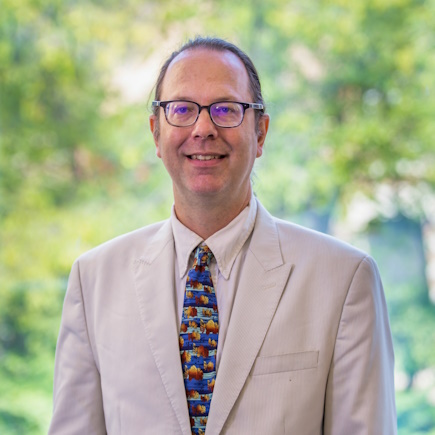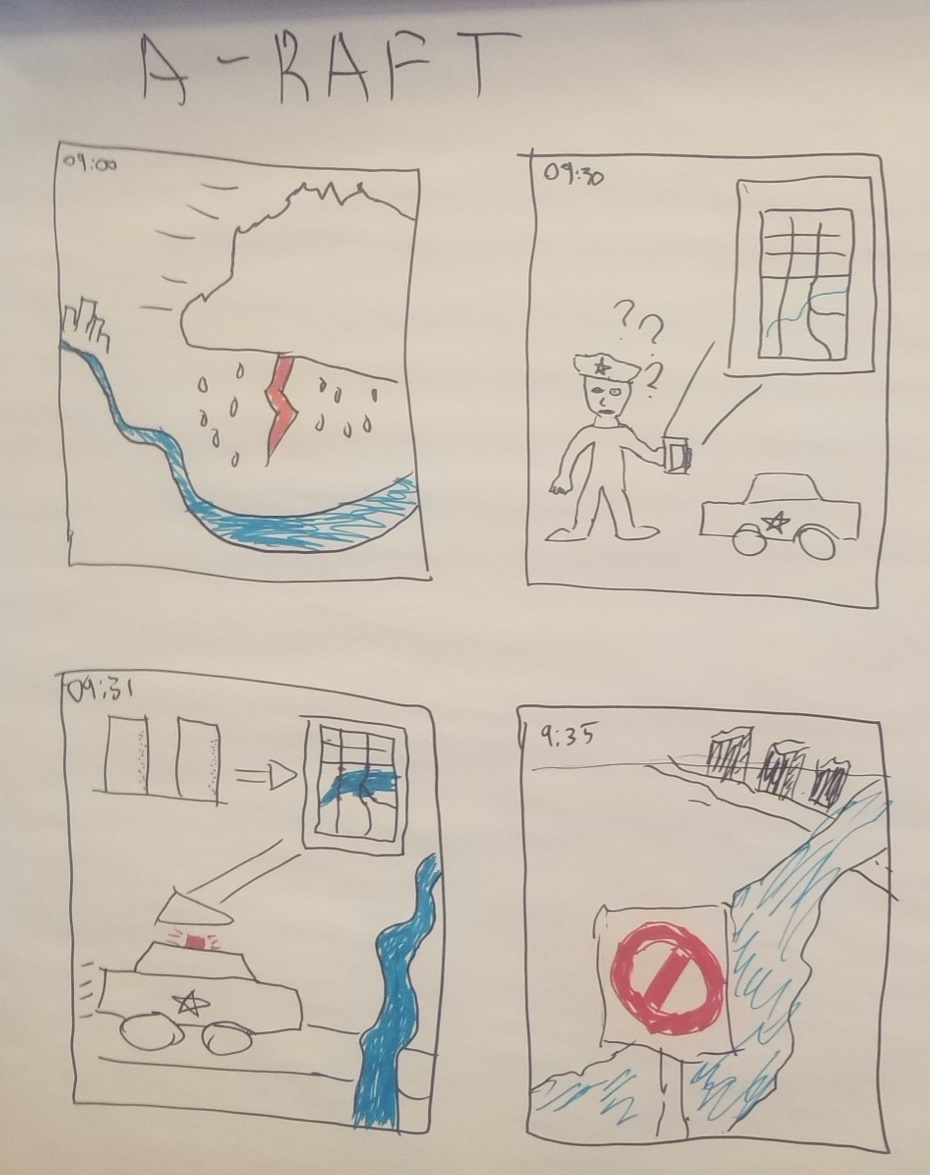School of Social Work Professor chosen to participate in high-profile NSF program
Richard Smith, PhD, professor and associate dean for research at Wayne State University’s School of Social Work, is at the forefront of innovative research tackling climate-induced challenges. His recent participation in the 2023 pitch competition at the National Science Foundation Convergence Research (CORE) Institute Bootcamp led to selection for the NSF CORE Institute Incubator Program at the University of California, San Diego.
 The focus of the bootcamp centered around "Addressing Climate-Induced Challenges through AI," aligning with Smith's technology-driven research philosophy. Smith joined an international team of researchers to devote six weeks to collaborating and learning how scientists co-design technological solutions to climate change-related challenges. Employing the convergence research methodology, they addressed real-life problems by integrating insights from various disciplines to develop innovative solutions.
The focus of the bootcamp centered around "Addressing Climate-Induced Challenges through AI," aligning with Smith's technology-driven research philosophy. Smith joined an international team of researchers to devote six weeks to collaborating and learning how scientists co-design technological solutions to climate change-related challenges. Employing the convergence research methodology, they addressed real-life problems by integrating insights from various disciplines to develop innovative solutions.
In the final week of the CORE Institute bootcamp, Smith and his colleagues pitched their project, Accessible Real-time AI-based Flood Tracking (A-RAFT). His team was selected to participate in the NSF CORE Institute Incubator Program at the University of California, San Diego, where they received additional training and had the opportunity to write a proposal together for in hopes of receiving funding for the project.
A-RAFT aims to create an easy-to-use system that combines various data like rainfall, terrain, and infrastructure to predict floods accurately and quickly. Using advanced AI technology, it will provide real-time flood predictions with high resolution, helping emergency managers and planners prepare and respond effectively. By streamlining complex processes, A-RAFT will enhance flood mitigation efforts, especially for vulnerable communities.
Smith, an expert in community and economic development, sustainability, and urban and social policy, has done research on sustainable community development and community resilience – in particular, on how systems can work together using technology for social good. “Flooding is important to me because I grew up with basement flooding. In Detroit, my friends, neighbors, and coworkers faced basement flooding,” Smith said. “This is just one of many consequences of increasing severe weather events due to climate change.”

The A-RAFT team brought together researchers and experts from a variety of backgrounds, including flood research, AI technology, social science, and public policy. The team also developed partnerships with community organizations and private companies to ensure that their work considered the needs of communities by involving them in the process. This commitment to interprofessional research that empowers health for our urban neighborhoods is a pillar of Wayne State and the School of Social Work’s commitment to our Detroit community.
"The CORE Institute has been a wonderful opportunity to connect with a talented and diverse set of fellows that share a passion for research that helps the many challenges associated with our changing climate,” the A-RAFT team said in a statement. “The fellowship bootcamp and incubator has helped our team ask relevant questions, refine our ideas for convergence research, and think about what it truly means to design research and technology that can be implemented and used effectively to address concrete challenges.”
The objective of A-RAFT is to revolutionize flood prediction by leveraging AI and diverse datasets, offering real-time insights for emergency management. Despite not securing NSF funding initially, Smith and the team remain committed to seeking alternative funding sources to advance their critical work.
Acting Dean Debra Patterson noted that "A-RAFT empowers communities, especially those most vulnerable, with real-time, AI-driven insights to prepare for and respond to floods. This project is a powerful example of how technology can bridge the gap between scientific advancements and social good."
A-RAFT is not the first time Smith has come together with academic experts and community experts to address the impact of climate change. In 2022, Smith led a project called “Recovering from Expected Flooding Under Residential Buildings” (REFURB), which integrated WSU faculty and local community members. REFURB used technology to improve recovery from and preparation for persistent and increasing severe basement flooding that impacted older homes in Eastside Detroit.
About the CORE Institute:
The Convergence Research (CORE) Institute, funded by the NSF Convergence Accelerator, is designed to catalyze an impact network of researchers, practitioners, and industry and public policy professionals committed to collaboratively engaging in convergence research that is driven by a specific and compelling societal problem and requires deep integration across disciplines and sectors. The Institute provides researchers and practitioners with a foundational experience to position them for impact throughout their careers on the most challenging societal issues of our time.
Writer: Sarah Freeman, Editor: Betsy Vanderstelt